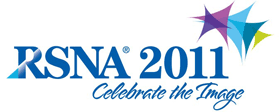
Abstract Archives of the RSNA, 2011
LL-INS-SU6A
Resident Call Simulator: A PACS-based Teaching System Using Cases Previously Missed by Residents
Scientific Informal (Poster) Presentations
Presented on November 27, 2011
Presented as part of LL-INS-SU: Informatics
Richard Joseph Thomas Gorniak MD, Abstract Co-Author: Consultant, Bracco Group
Adam E. Flanders MD, Abstract Co-Author: Research Consultant, Geron Corporation
Richard Earnest Sharpe MD, MBA, Presenter: Nothing to Disclose
Levon N. Nazarian MD, Abstract Co-Author: Nothing to Disclose
This system offers a method of realistic resident preparation prior to call, enabling the resident to gain experience from errors made by previous residents.
Radiology residents typically start taking overnight call with the responsibility of initial interpretation of radiologic studies in the second year of training. While residents are prepared for this during their first year of training, their level of experience is initially low. In order to increase residents’ experience level prior to call, a call simulator was developed.
A PACS (Philips iSite) plug-in was developed to enable attendings to log cases in which an interpretive error was made by an on-call resident and comment on the error made. Using this database, the entire DICOM file set of the missed case and final report was extracted from PACS and anonymized. The anonymized DICOM files were then sent to a nonclinical PACS server. Using php and mySQL interfacing with the PACS via the built in javascript API, a user interface was made to sort and list cases, display images and clinical history, show the final report and attending comments after a case has been reviewed and record user self assessment of performance on each case.
This system offers a significant adjunct to pre-call resident preparation. Unlike a typical teaching file, the user has the entire data set to evaluate instead of a few preselected key images. This is a more realistic condition where the user must sort through a large volume of information to detect the pertinent findings. Since the PACS is used as the display tool, the reading of the teaching case “feels” similar to reading a clinical case. The cases used are cases that were previously missed by on-call residents, often with subtle findings. This allows residents to gain experience from the mistakes of other trainees. Additionally, this system allows for tracking of resident performance during the use of the system. As the cases are anonymized, the confidentiality of patients is protected and the resident who originally read the case is spared any embarrassment from being including in a list of missed cases.
Gorniak, R,
Flanders, A,
Sharpe, R,
Nazarian, L,
Resident Call Simulator: A PACS-based Teaching System Using Cases Previously Missed by Residents. Radiological Society of North America 2011 Scientific Assembly and Annual Meeting, November 26 - December 2, 2011 ,Chicago IL.
http://archive.rsna.org/2011/11034289.html

